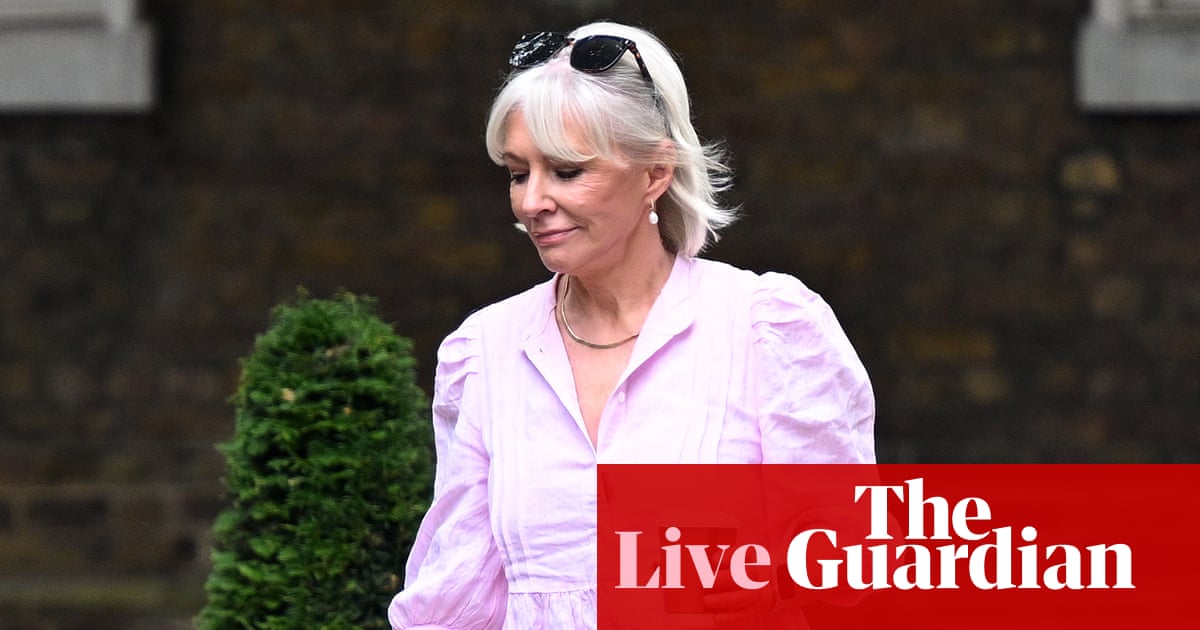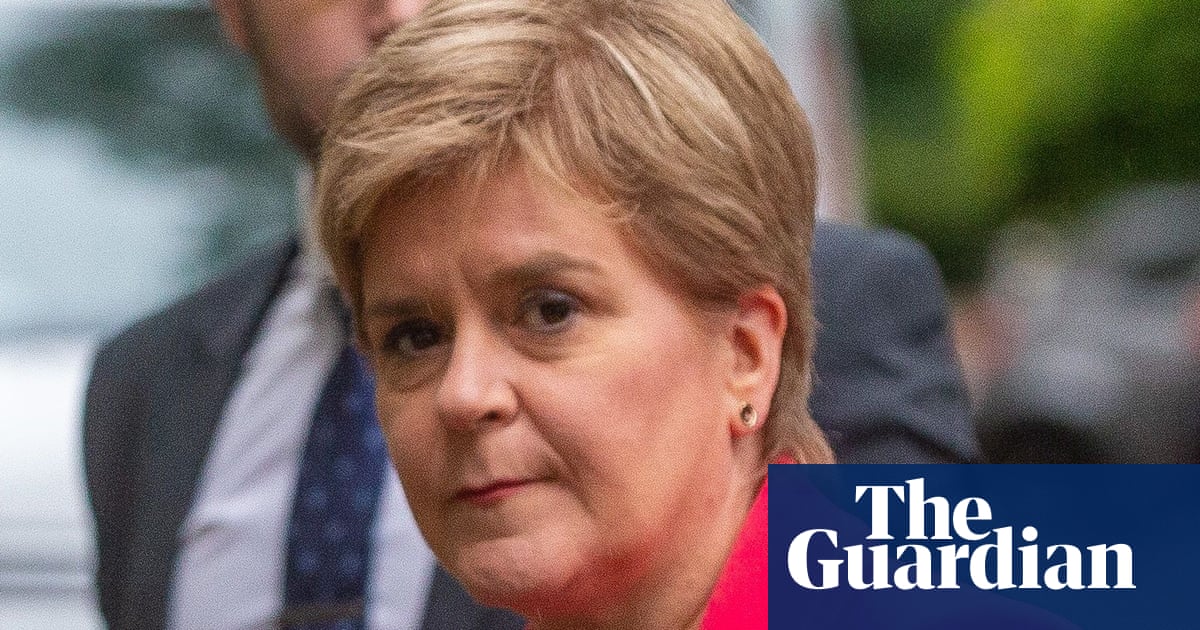
Nicola Sturgeon struck a sombre tone as she confirmed on Friday that Omicron had replaced Delta as the dominant Covid strain in Scotland.
Addressing the public for the third time this week, Scotland’s first minister said: “The tsunami I warned about last week is starting to hit us.”
Hammering home Scottish government advice to limit social contact ahead of festive celebrations, she asked people to “think about whether its worth it to you to run the risk of not being with your family on Christmas Day.”
Sturgeon’s language and tone has taken on a palpable urgency over the past week, first urging the postponement of work Christmas parties, then limiting indoor mixing to three households and by Thursday appealing directly to the public to “please stay at home”.
There is an inescapable contrast with the UK prime minister, Boris Johnson, who is not only suffering from the fallout over revelations about last year’s Christmas parties, but also continues to insist they should go ahead this year, proclaiming that the booster jab rollout signifies “a great national fightback”.
At Friday’s briefing, with her trademark insistence that she is not scoring political points, Sturgeon expressed her hopes for further talks with the prime minister about emergency funding.
Although the Scottish government is putting £100m into the food and drink supply chain, wholesalers, culture and wedding sectors, she reiterated that the crisis “now needs the type and scale of financial support available earlier in the pandemic that can only come from the UK government – because it has borrowing powers that the Scottish, Welsh and Northern Irish governments simply do not have”.
Officials working closely with the first minister characterise this as a week of growing frustration for the Scottish government: the Treasury press release on what turned out to be over-spun funding sent out as Sturgeon stood up to deliver her Covid statement on Tuesday; the belated realisation that the chancellor was in fact out of the country as they tried to discuss a fuller financial support package; the scheduling of Wednesday’s Cobra meeting with the devolved governments at the same time as Boris Johnson’s statement. It was the sobering data discussed at that meeting that directed Sturgeon’s grave tone on Thursday in the Holyrood chamber.
Conveying strong and data-driven concern, says Linda Bauld, professor of public health at the University of Edinburgh, “is a motivator for the public to change their behaviour, particularly in Scotland where you have a high level of trust in government. Part of the purpose of these briefings is to encourage behaviour change in a context when most things are still open.”
As one former health adviser observes: “She is reaping the benefits of clear messaging. Compared with Johnson, she is so much clearer about the situation and rationale and this is really critical, because it produces trust and compliance, and that’s all the more important right now when people are fed up.”
But if Sturgeon is banking on her personal trust to encourage lockdown behaviour without introducing lockdown regulations, she must also face accusations of “lockdown by stealth” as hospitality businesses report devastating cancellations while high streets and shopping centres experience reduced footfall.
Asked at Friday’s briefing about glaring inconsistencies, for example as weekend football matches go ahead as planned, Sturgeon said: “I can’t give more straightforward advice on events, to say ‘Don’t go’, when I can’t compensate people.”
Earlier on Friday, her Welsh counterpart, Mark Drakeford, who is bringing in nightclub closures from Boxing Day, said it was “unfair” that it was up to the Treasury to decide if more UK funds should be released to help.
Bauld said: “I think policymakers would have probably taken harder action to prevent overwhelming the NHS, but the financial support has not yet been forthcoming”.
What they are acutely aware of, she says, is the accumulation of harms – from businesses going bust to children’s education disrupted to operations cancelled – across the population.
“The vast amount of people will do the right thing and follow guidance, but unfortunately people are suffering more continued harm and will do if there’s tougher restrictions. It sucks basically.”












